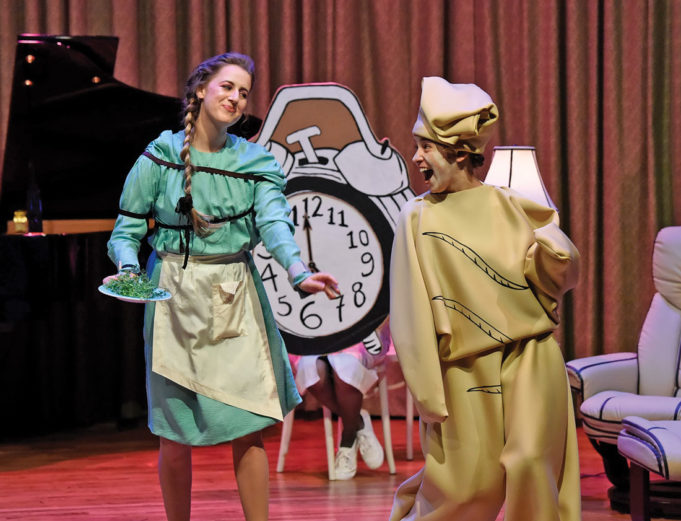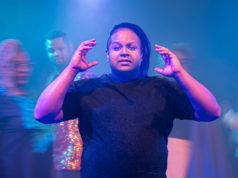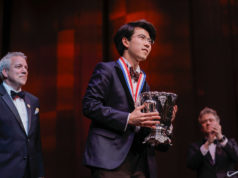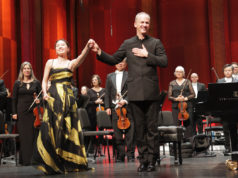Companionship received its world premiere from Fort Worth Opera last week, and it is easily the weirdest thing I’ve ever seen staged by the troupe. Fortunately, I’m well-equipped to handle strange. When you go home to digest this opera, you won’t look at that loaf of bread in your house the same way.
Adapted from Arthur Phillips’ short story, the opera begins with Leslie Sinclair (Maren Weinberger Maddry) about to bake her 207,345th baguette, but when she goes to cut a steam vent in the dough (Kate Tombaugh), the bread comes to life and asks her not to. This plot development makes more sense when you learn that Leslie has recently been released from a mental hospital with a major eating disorder — “Food is terror! Food is perfection!” she sings — and an array of obsessive-compulsive tics, like keeping exact count of how many loaves of bread she bakes. The dough immediately starts taking over Leslie’s life, forcing her to get rid of her oven, her TV, her clocks, and her family members. In exchange, it will tell Leslie what it calls “a great wisedom” in its lumpen, unformed grammar.
That last bit is an inspired touch by composer Rachel J. Peters, who pulls double duty as the librettist here. She also comes up with a nice pun early on when the dough seems to be asking for time when in fact it wants thyme. Despite this, the opera does take a while to gather any sort of momentum. The first half is largely concerned with Leslie’s relationship to her dough, and not all the comedy works, nor does the music elicit the sense of laughter-induced dread that the work is going for. My biggest beef with this opera is actually the title, taken from Phillips’ story, which tells us nothing about what to expect or how to interpret what we see. Surely the composer could have made any number of bread-related plays on words.
The story catches more in the second half, as we see Leslie’s nightmarish home life unfold with an ineffectual father (Samuel Schultz), an overbearing mother (Hilary Ginther) who regards her daughter’s mental illness as a giant embarrassment, and a sister (Jeni Houser) who is worse, if anything. The dough eventually spawns a mate (Ben Sieverding) for itself, and the two sing a funny love duet (“Take me up in fields of thyme”). This is immediately followed by the most excerptable portion of the opera, Leslie’s aria “Time to end the whole thing!,” in which she sees a bleak vista of her future alone, baking endless loaves forever. In the next scene, the vision comes hilariously and hideously true, as she finds her house taken over by all the loaves she has made (sung by a children’s chorus), each of them clamoring for her attention and thyme.
The opera was staged in the auditorium of the Fort Worth Botanic Garden, a new venue for the company, which turned out to be a nice space for a piece as intimate as this one. Instead of an orchestra in a pit, the musical accompaniment was provided by conductor Adam Marks playing a piano at the back of the stage in full view of the audience. Beth Greenberg’s stage direction included oversize props intended to reflect the disordered state of the protagonist’s mind, a gambit that didn’t quite work.
Still, this misstep didn’t detract from the cast. In terms of acting and singing, I couldn’t find a weak link here. Tenor David Walton contributed sharpness in a brief role as a sexpot of an exterminator who goes into Leslie’s house and surveys the damage. The soprano Houser had a great deal of fun wearing designer outfits and lording over her sister with her advertising job and active sex life. Best of all was Weinberger Maddry, singing in a pleasantly tart soprano and depicting the madness seeping in and poisoning Leslie’s mind. Lately, the new works showcased by Fort Worth Opera haven’t been afraid to go in odd and funny directions, and if it results in more shows like Companionship, I’m here for it.












